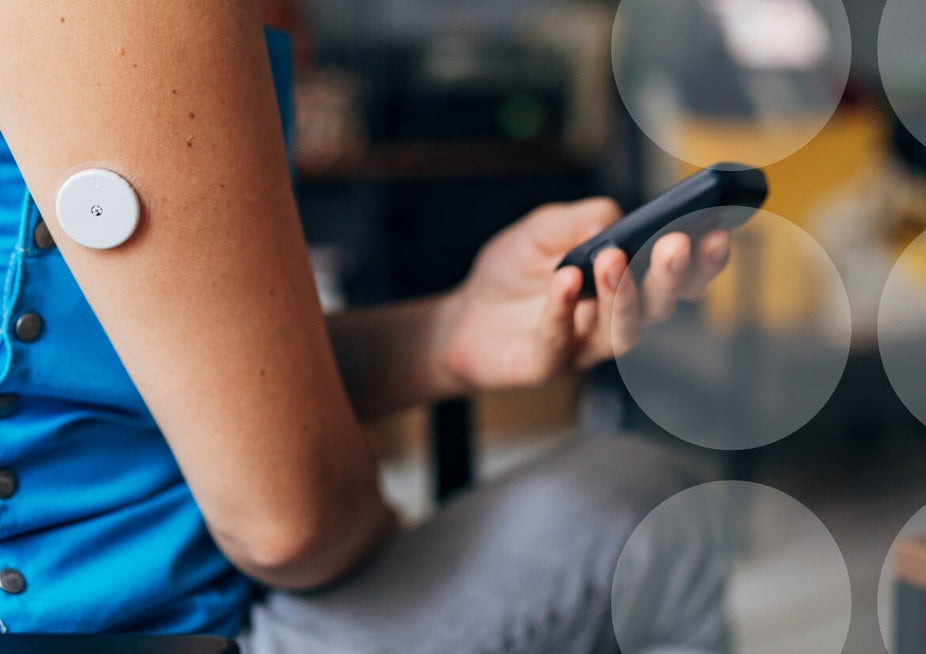10 signs and symptoms of polycystic ovary syndrome (PCOS)
Do you know the signs and symptoms of polycystic ovary syndrome (PCOS)?
Polycystic ovary syndrome (PCOS) is a hormonal condition that affects women of childbearing age. It can cause a range of symptoms, which can vary in severity from woman to woman.
Most symptoms of PCOS are caused by high levels of male hormones in the body as well as insulin resistance.
In this article we discuss the following signs and symptoms of PCOS:
- Irregular or absent periods
- Difficulty losing weight or weight gain
- Fatigue
- Hirsutism and hair loss
- Acne or oily skin
- Insulin resistance
- Fertility problems
- Acanthosis nigricans (dry, dark patches of skin)
- Mood changes, low self-esteem, and mental health issues
- Ovarian "cysts"
1. Irregular or absent periods
PCOS often causes changes in the menstrual cycle, such as irregular or absent periods.
However, it's important to note that irregular or missing periods don't always mean you have PCOS, and may be due to other conditions like thyroid disease.
2. Difficulty losing weight or weight gain
Many women with PCOS struggle with weight management. In fact, around 38–88% with PCOS are overweight or obese [1], which can be challenging for women both physically and emotionally.
PCOS itself can make it more difficult to lose weight, and being overweight can worsen PCOS symptoms as well as increase the risk of other health problems.
However, both lifestyle changes and a PCOS-friendly diet can help you maintain a healthy weight.
3. Fatigue
Fatigue is one of the most common symptoms of women with PCOS [2].
As well as feeling tired during the day, fatigue might also lead to:
- Difficulty concentrating
- Mood swings
- Headaches
Fatigue may be due to a hormone imbalance or sleep disturbances, such as obstructive sleep apnoea (OSA). Women with PCOS are twice as likely to develop OSA than women without the condition [3].
4. Hirsutism and hair loss
PCOS can cause excessive hair growth on the face and body (hirsutism), as well as thinning hair on the scalp. These symptoms are caused by high levels of male hormones in the body.
Excess hair growth can occur on the:
- Face
- Neck
- Chest
- Abdomen
- Lower back
- Bottom
- Thighs
Hirsutism in women can range from mild to severe. You can use the Ferriman-Gallway Score to gauge the severity of hirsutism.
5. Acne or oily skin
Raised androgen levels can also cause acne and oily skin.
Oily skin can affect the:
- Face
- Back
- Neck
Having oily skin can cause acne, both of which can be distressing to live with. But the good news is, a combination of lifestyle changes, dietary improvements, supplements, and medication can help. To help with symptom management, we have put together five ways to manage your PCOS symptoms.
6. Insulin resistance
As many as 70% of women with PCOS have insulin resistance [4].
Insulin resistance means that the cells in the body are resistant to the effects of insulin. To compensate, the pancreas produces more insulin to maintain a normal blood sugar level.
High levels of insulin cause the ovaries to produce too much testosterone and can also lead to weight gain, which can make symptoms worse.
Maintaining a healthy weight is one of the best ways to manage insulin resistance. Medications, such as metformin, are also sometimes helpful.
7. Fertility problems
Doctors sometimes prescribe women with heavy or irregular periods contraception to help manage their symptoms [5]. These menstrual symptoms may be due to undiagnosed PCOS. As such, many women only discover they have PCOS when they stop using birth control and want to have children.
If you are not ovulating regularly due to PCOS, then it will take you longer to conceive. If you are not ovulating at all, it will not be possible to become pregnant without treatment.
Lifestyle changes and medications can help you ovulate more regularly and improve your chances of getting pregnant.
8. Acanthosis nigricans
Acanthosis nigricans is when dark velvety patches of skin show up on your neck, groin, or under your arm. It's more common in people with darker skin.
Acanthosis nigricans can help identify whether someone with PCOS has an increased risk for type 2 diabetes mellitus [6]. Acanthosis nigricans may be due to an increased BMI and irregular insulin levels.
Treatment for acanthosis nigricans is through a combination of lifestyle changes and medication to balance your hormones and insulin levels.
9. Mood changes, low self-esteem, and mental health issues
PCOS symptoms can affect your mood and self-confidence. This is especially true if you have noticeable signs such as weight gain, excess hair growth, and acne. PCOS can also lead to severe mental health issues, including anxiety, depression, and eating disorders.
It can be a debilitating condition, both physically and emotionally. If your mood is affected, it's important to talk to your doctor.
You can read more about where to get support in our blog: what every woman needs to know about PCOS.
10. Ovarian "cysts"
Despite the name, women with PCOS don't have cysts on the ovaries. Instead, most women have fluid-filled sacs called follicles that surround the eggs. These follicles are harmless and can be anywhere up to 8mm (approximately 0.3 inches) in size [7]. These are usually picked up on an ultrasound scan.
In PCOS, these follicles may be unable to release an egg which can affect fertility.
Fortunately, there are ways to manage and treat PCOS and associated fertility problems. You can find more information on our blog: how can PCOS affect my fertility?
What should I do if I’m experiencing symptoms of PCOS?
If you are experiencing any symptoms of PCOS, we recommend speaking to your doctor.
You can also start your investigation from home with our Polycystic Ovary Syndrome Blood Test. This test measures your hormone levels to find out whether PCOS is likely, alongside your symptoms.
For more information on PCOS, check out our PCOS guide.
References
- Barber, T., Hanson, P., Weickert, M. and Franks, S., 2019. Obesity and Polycystic Ovary Syndrome: Implications for Pathogenesis and Novel Management Strategies. Clinical Medicine Insights: Reproductive Health, 13, p.117955811987404.
- Health, P., 2022. PCOS and Fatigue - Why Are You Feeling So Tired? - PERLA Health. [online] PERLA Health. [Accessed 14 June 2022].
- Kumarendran, B., Sumilo, D., O’Reilly, M., Toulis, K., Gokhale, K., Wijeyaratne, C., Coomarasamy, A., Arlt, W., Tahrani, A. and Nirantharakumar, K., 2019. Increased risk of obstructive sleep apnoea in women with polycystic ovary syndrome: a population-based cohort study. European Journal of Endocrinology, 180(4), pp.265-272.
- Marshall, J. and Dunaif, A., 2012. Should all women with PCOS be treated for insulin resistance?. Fertility and Sterility, 97(1), pp.18-22.
- Tommys. PCOS and fertility: everything you need to know. 2022. [online] [Accessed 14 June 2022].
- G, S., 2013. Acanthosis Nigricansin PCOS Patients and Its Relation with Type 2 Diabetes Mellitus and Body Mass at a Tertiary Care Hospital in Southern India. JOURNAL OF CLINICAL AND DIAGNOSTIC RESEARCH.
- NHS. 2022. Polycystic ovary syndrome. [online] [Accessed 15 June 2022].
Related tests
Are you experiencing symptoms of PCOS like irregular periods, excess facial hair, or oily skin? Perhaps you’ve been diagnosed with PCOS and want to check your cholesterol levels and diabetes risk
- Results estimated in 4 working days
- 19 biomarkers
Venous collection
Select testStruggling with irregular periods, weight changes, or acne? This PCOS blood test helps assess key hormone levels that could indicate polycystic ovary syndrome, a common condition affecting ovulation and metabolism
- Results estimated in 4 working days
- 5 biomarkers
Finger-prick or Venous collection
Select test





